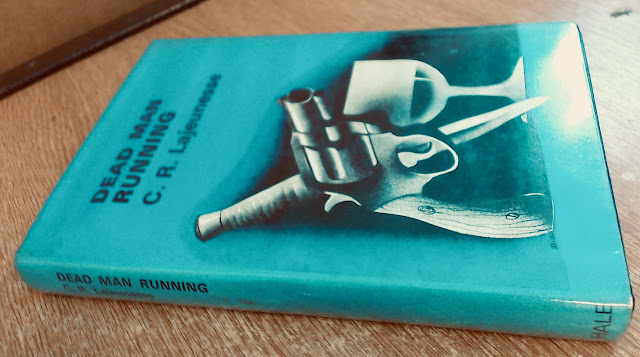One the first books I found in a bookshop* upon moving to Brighton was Rosalind Belben's novel Is Beauty Good. I had seen it two years earlier chosen in a newspaper books of the year listing alongside Jacques Roubaud's Le Grand Incendie de Londres and Thomas Bernhard's Old Masters. Those were the days.
I'd not read a book like Is Beauty Good before, and haven't since, and while its unique qualities are suggested by its form – there are 30 chapters in 111 pages – describing it further threatens to sidetrack me from what I'd like to say. The cover painting by Sigmar Polke is helpful here: we see a figure, we see colours, shapes and lines. Each is there to see; it's not abstract, yet also not distinct in part or as a whole; there are individual elements, merging, each apparently on the way to full clarity, a state impending at all times and yet one we know can never fully arrive. And so the novel's various voices, anecdotes, observations, questions and exclamations.
Two of the book's blurbs use the word 'beautiful'. David Plante says "I can't think of anyone writing in English (with the possible exception of Beckett) whose prose is as beautiful." (The novel was published in the months before Beckett's death in December 1989.) What distinguishes the prose for me is the use of commas chopping up sentences like the oblique slant dividing lines of poetry in quotation. This is enhanced by the publisher Serpent's Tail using a denser, more upright typeface. The effect is curiously similar to taking a bath in one of Proust's sentences: it expands one's consciousness in fleeting exposures to the outside.
The use of the word 'beautiful' has some irony given the title and the refrain inside in which a guard on the Berlin Wall asks whether it is good that the corollary to our attraction to the beautiful is our disgust at what enables it. To where does it lead to call something beautiful? The recent reissue of Rosalind Belben's 1974 novel The Limit reveals a persistent concern for the question, as discussed by Kirsty Gunn in her review. I hope the NYRB reissues some more, including and especially Is Beauty Good.
*Wax Factor on Trafalgar Street. It has now stopped selling books. End times.














